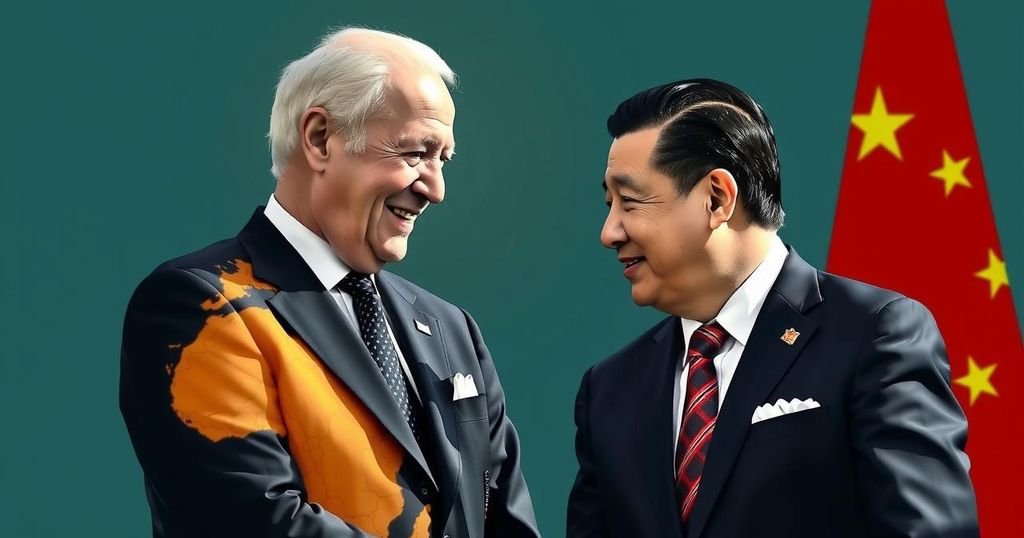Biden Visits Africa to Promote Countermeasure Against China Through Lobito Corridor
President Biden’s visit to Africa focuses on promoting the Lobito Corridor railway project as a strategy to counter Chinese influence. This trip marks the first African tour for Biden, emphasizing the importance of U.S. engagement in the continent’s development. Analysts remain concerned about the continuity of such initiatives beyond Biden’s administration and the necessity for sustained U.S. commitment to counterbalance China’s dominance in the region.
This week, President Joe Biden embarks on a pivotal visit to Africa, aimed at promoting a U.S.-backed railway initiative known as the Lobito Corridor in Zambia, the Democratic Republic of the Congo, and Angola. This project represents an effort by the Biden administration to counterbalance China’s considerable influence in the region, particularly in the realm of critical minerals necessary for advanced technologies. Despite the significance of this initiative, experts caution that lasting relations depend on the subsequent leadership, particularly with the incoming Donald Trump administration, which may prioritize its own strategies regarding Africa and China.
Starting in Cape Verde, where he was welcomed by Prime Minister Ulisses Correia e Silva, Biden’s journey emphasizes a renewed American focus after years of perceived neglect. The Lobito Corridor, estimated to cost $2.5 billion, seeks to reinforce U.S. presence in a resource-rich area, enhancing trade routes for cobalt and copper. Many stakeholders hope that, regardless of who occupies the White House in the future, the momentum for this project will continue, especially as it is viewed as a key instrument against Chinese dominance in Africa.
The Biden administration has indicated that the Lobito project will serve as a cornerstone of its strategy to develop U.S.-Africa relations through improved trade and infrastructure. However, significant skepticism remains among analysts who argue that one initiative is insufficient to shift the long-term dynamics heavily swayed by China. Moreover, Biden’s visit highlights a longstanding concern about America’s commitment to the continent, emphasizing that consistent engagement is necessary for sustainable progress.
The backdrop of President Biden’s visit to Africa includes the growing influence of China, which has established substantial economic ties and infrastructure projects throughout the continent. The Lobito Corridor railway seeks to establish U.S. competitiveness in regions abundant with critical minerals used in technology and renewable energy sectors. Analysts express mixed feelings about the potential impact of this project, considering that U.S.-Africa relations have been historically fragmented, and the need for consistent engagement is critical for progress amid China’s expanding footprint.
In conclusion, President Biden’s visit to Africa signifies a crucial attempt at reinvigorating U.S. engagement on the continent through the Lobito Corridor project. However, the project’s future hinges not just on immediate successes but also on the upcoming leadership and its strategic priorities, especially with Donald Trump poised to influence the direction of U.S. foreign policy in Africa moving forward. Acknowledging the historical neglect and China’s dominance, the U.S. must adopt a more proactive stance in its diplomatic relations with African nations.
Original Source: apnews.com








Post Comment